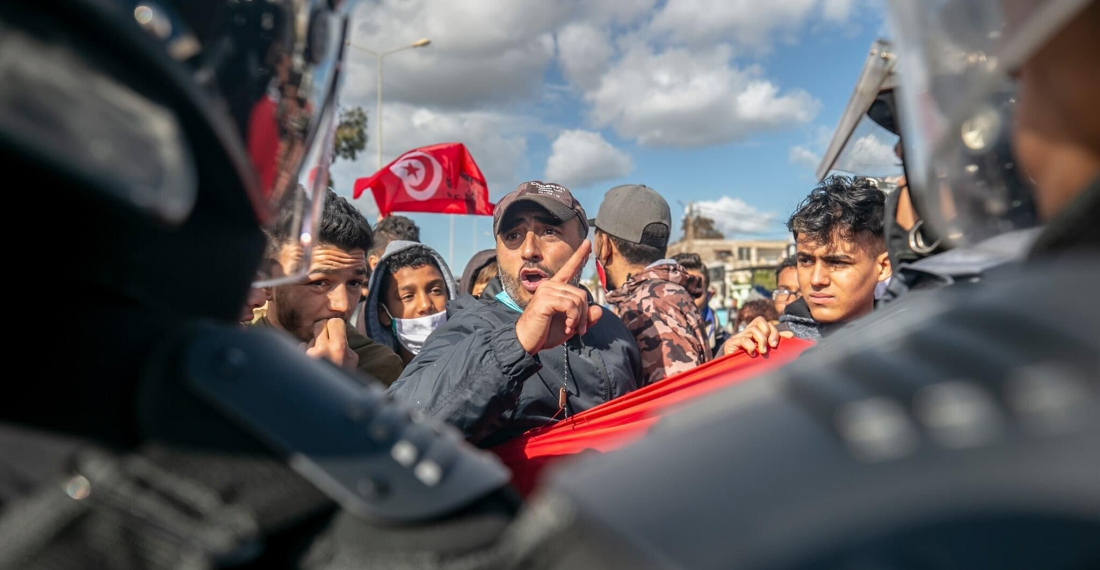The prime minister of Tunisia has reshuffled his government amid street protests and a growing political crisis.
Prime Minister Hichem El Mechichi announced to the parliament the names of 11 new ministers including interior, justice, health and other key portfolios.
President Kais Saied was not consulted and the later argued that one of the appointed ministers was involved in a corruption case and that three others were suspected of conflicts of interest. El Mechichi, however, said that the reshuffled cabinet would listen to the demands of the protestors.
Tunisia is facing a heavy wave of anger due to an economic crisis and a prolonged pandemic. Many of the youth in the streets feel that the political power struggle is disconnected for the reality of ordinary Tunisians.
"Poverty is growing, hunger is growing," read one sign carried by the protesters, while another demanded "Dignity and freedom for working-class neighborhoods."
Tunisia's politics have been turbulent especially over the past two years due to divisions in the parliament and a deepening rift between the prime minister and president.
On Wednesday evening, The office of the president announced that an assassination attempt targeted the president, Kais Saeed, via a poisoned postal parcel. The president did not receive the parcel directly, and he is in good health. All mail of Carthage Palace, the p[residential residence, is currently being tested and sorted and checked in an off-site facility.
Tunisia has often been hailed as a successful model of democratic transition in the Arab world yet police conducted mass arrests and adopted a rather violent attitude in the recent protests.
The streets have in recent days also witnessed the return of the famous slogan 'Erhal' (Leave) which characterised the uprisings across the region in 2011. Analysts have quickly cautioned to use the term revolution to describe the wave of anger in the Tunisian streets. They have also, on the other hand, suggested the future remains unclear.







